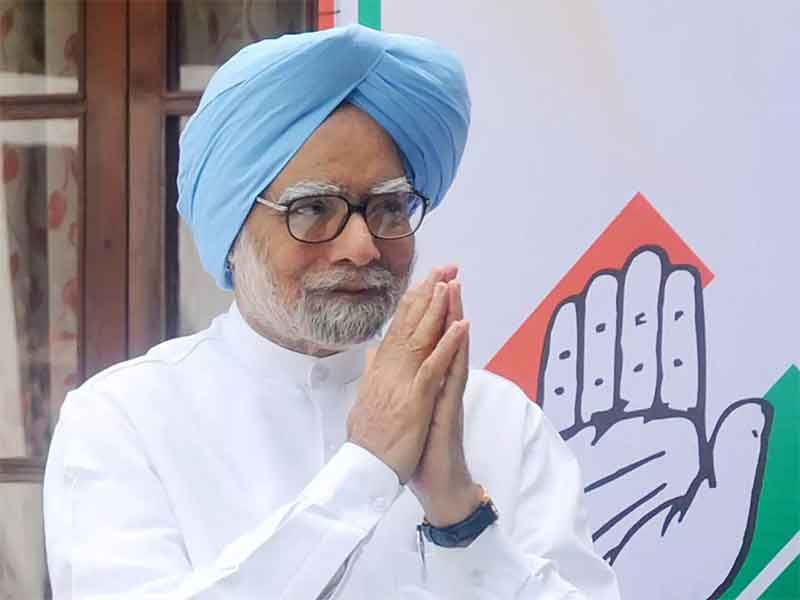Dr. Manmohan Singh: A Legacy of Economic Reform and Quiet Leadership
Burocrazy Exclusive
Dr. Manmohan Singh: A Legacy of Economic Reform and Quiet Leadership
News in Brief
Dr. Manmohan Singh (1932–2024), India’s 13th Prime Minister, was a transformative economist and statesman. Born in Gah, now Pakistan, Singh's academic brilliance led him to Cambridge and Oxford, where he laid the groundwork for his economic reforms. As Finance Minister in 1991, he spearheaded India’s economic liberalization, dismantling the License Raj and fostering growth. His tenure as Prime Minister (2004–2014) saw landmark initiatives like MGNREGA, the Right to Education, and the Indo-U.S. Civil Nuclear Agreement. Remembered for his integrity, intellect, and quiet leadership, Singh’s legacy profoundly shaped India’s economic and political trajectory, earning him global respect and admiration.
Dr. Manmohan Singh, the 13th Prime Minister of India, passed away on December 26, 2024, leaving behind a legacy that profoundly shaped the economic and political landscape of the nation.
Born on September 26, 1932, in Gah, now part of Pakistan, Singh's life journey from a village in undivided Punjab to the highest office in India is a testament to his intellect, integrity, and commitment to public service.
His tenure as Prime Minister from 2004 to 2014, and prior roles, particularly his transformative period as Finance Minister in the early 1990s, marked him as one of India's most distinguished leaders.
Singh's academic prowess was evident from an early age. After completing his schooling in Punjab, he pursued higher education with distinction, earning a First Class Honours degree in Economics from the University of Cambridge in 1957, followed by a D.Phil from Oxford in 1962. His scholarly work, including his book "India’s Export Trends and Prospects for Self-Sustained Growth," critiqued India’s then-prevailing inward-oriented trade policies, setting the stage for his future contributions to economic policy.
His career in public service began in 1971 when he joined the Government of India as an Economic Advisor in the Commerce Ministry, quickly rising to Chief Economic Advisor in the Finance Ministry in 1972. Over the decades, Singh held pivotal roles, including Governor of the Reserve Bank of India, Deputy Chairman of the Planning Commission, and various advisory positions, each contributing to his deep understanding of India’s economic challenges.
The turning point in Singh’s career, and indeed in India's economic history, came in 1991 when he was appointed as Finance Minister under Prime Minister P.V. Narasimha Rao. Faced with a severe economic crisis, Singh spearheaded a series of bold reforms that liberalized the Indian economy. His policies dismantled the License Raj, reduced tariffs, and encouraged foreign investment, which not only averted an economic collapse but also set India on a path of sustained growth. These reforms, often referred to as economic liberalization, transformed India from a protectionist economy into a burgeoning market economy, earning Singh global recognition as a reformer.
In 2004, after a surprising electoral victory for the United Progressive Alliance (UPA), Sonia Gandhi, the UPA chairperson, nominated Singh as the Prime Minister, a decision that stunned many due to Singh's lack of a direct electoral mandate but was celebrated for his reputation as a clean, competent, and scholarly leader. His tenure as Prime Minister was marked by significant legislative achievements, including the Right of Children to Free and Compulsory Education Act in 2009, which made education a fundamental right for children aged 6 to 14. Singh's government also focused on inclusive growth, with landmark initiatives like the Mahatma Gandhi National Rural Employment Guarantee Act (MGNREGA), aimed at providing employment to rural households.
One of the most contentious yet defining moments of Singh's premiership was the negotiation and eventual signing of the Indo-U.S. Civil Nuclear Agreement in 2008. This agreement, which allowed India access to civilian nuclear technology and fuel, was a diplomatic coup, enhancing India's energy security and its strategic partnership with the United States. However, it also led to significant political turmoil, with the Left parties withdrawing support from the UPA government over the deal.
Singh's leadership style was characterized by his quiet demeanor, scholarly approach, and a focus on consensus-building, often critiqued for being too soft-spoken in the tumultuous arena of Indian politics. Yet, his ability to navigate through complex political landscapes was evident when he managed to secure a second term in 2009, becoming the first Prime Minister since Jawaharlal Nehru to do so. His second term, however, was marred by controversies including corruption allegations against his government, though Singh himself remained untouched by personal scandal, maintaining his image as 'Mr. Clean'.
Internationally, Singh continued the pragmatic foreign policy initiated by his predecessors, enhancing relations with both traditional allies and emerging powers. His engagement with China, including the reopening of the Nathula Pass, and his efforts to strengthen ties with Afghanistan and the United States, were notable. Domestically, his approach to governance was often criticized for lacking assertiveness, yet his contributions to India's economic policy framework and social welfare programs left an indelible mark.
After retiring from the Rajya Sabha in February 2024, Singh's health began to decline, but his legacy as an economist and a leader who brought India onto the global economic stage remained undiminished. Tributes poured in from across the political spectrum following his passing; Prime Minister Narendra Modi called him one of "India's most distinguished leaders," and leaders like Rahul Gandhi and Amit Shah praised his contributions to democracy and governance.
Dr. Manmohan Singh's life was one of service, scholarship, and significant reform. He guided India through economic liberalization, faced political challenges with dignity, and left a legacy of policy initiatives that continue to influence India's development trajectory. His death marks the end of an era, but his contributions to India's economic and political fabric will be remembered as pivotal in the nation's journey towards becoming a global economic powerhouse. As India mourns the loss of this gentle giant, his life serves as an inspiration for future leaders on the power of quiet leadership, integrity, and the pursuit of knowledge in governance.
Advertise with US
Advertise with US









